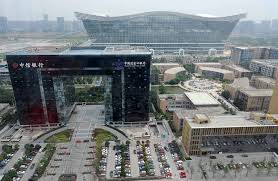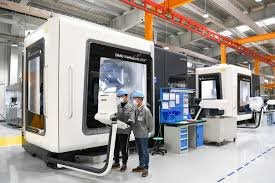China to promote high-quality development of national hi-tech zones to catalyze entrepreneurship, innovation

China Economic Net
Beijing: China is ready to roll out policies to deepen the reform and opening up of national high-tech zones to boost high-quality development, the State Council’s executive meeting chaired by Premier Li Keqiang has decided.
The Chinese government places high importance on the development of national high-tech zones. Premier Li Keqiang set out clear requirements for national high-tech zones to play a leading role in pooling innovation resources.
With 30-plus years of development, China’s national high-tech zones have grown into pacesetters in terms of innovation, industry and talent in the country’s economic and regional development. They have effectively contributed to the shift of growth model, structural upgrading and international competitiveness. In 2019, the 169 national high-tech zones in China created 12.2 trillion yuan (about 1.72 trillion U.S. dollars) in output and their export volume reached 3.8 trillion yuan, accounting for 12.3 percent in China’s GDP and 22.05 percent in the country’s export.

“The vital role of national high-tech zones in underpinning innovation-driven development must be brought into full play. If we are to move China’s economy up the value chain and promote high-quality development, we must harness the magnetic effect of the high-tech zones, and bring out their potential and strength,” Li said.
The Wednesday meeting noted the exemplary and leading role of national high-tech zones, as important launchpads for promoting high quality development, in deepening reform and opening up. They also help spur entrepreneurship and innovation, and create jobs for college graduates.
Applicable policies tried and tested in pilot free trade zones and national innovation demonstration zones will be extended to national high-tech zones, where more pro-innovation policies will be piloted. Regulations on long-term multiple-entry visa and residence permit for overseas talent will be relaxed.
“The key in bringing out the advantages of these zones is reform and opening up. Unjustified restraints shall be removed. The government shall do its best in making a difference where breakthroughs and new steps are possible, to boost market confidence,” Li said.
National high-tech zones will be further opened up. Diverse forms of cooperation will be encouraged between these zones and foreign counterparts, to better integrate them into international industrial and supply chains.
National high-tech zones will be granted provincial or municipal administrative powers on economic matters.
Commercial banks will be encouraged to set up branches dedicated to science and technology sectors in national high-tech zones. Intellectual property pledge financing will be supported. Qualified developers of national high-tech zones may go public to raise funds.
“Faced with the current situation, greater opening-up of national high-tech zones is crucial to maintaining stability in industrial and supply chains,” Li said.
The meeting adopted the draft regulation on ensuring payments to small and medium-sized enterprises (SMEs), providing for contract signing, funding provision and means of payment for government departments, public institutions and large enterprises in their dealings with SMEs.
The regulation sets out requirements on payment period and acceptance review. A payment information disclosure system will be established. The regulation also lays down provisions for handling complaints, penalty for acts of bad faith, and disciplinary action and accountability.
The meeting urged government departments and public institutions at all levels to lead by example in implementing the regulation and meeting related payments.
State-owned enterprises and large platform companies should also strictly enforce the regulation,





